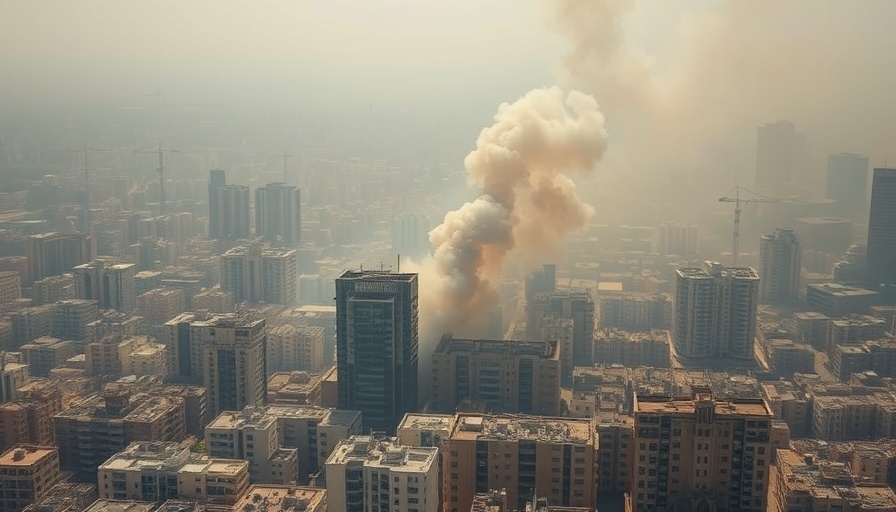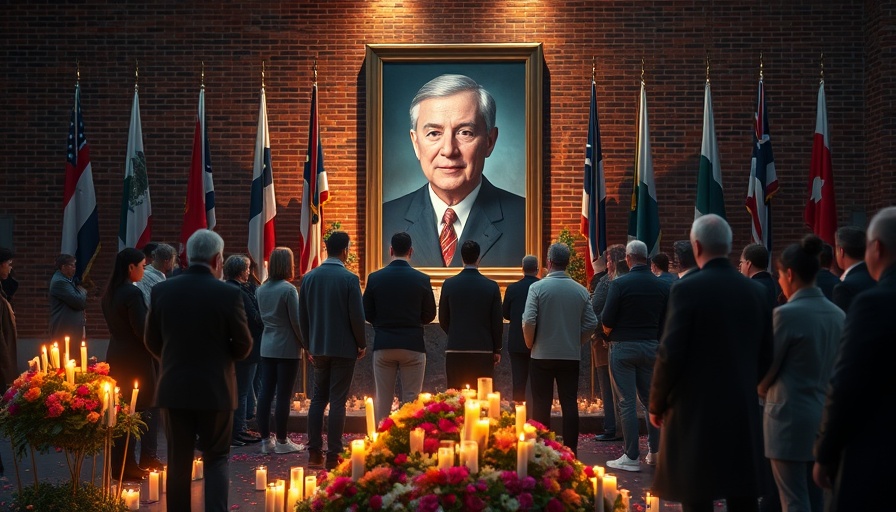
The Unfolding Implications of Iran-Hamas Communications
Recent revelations have brought to light complicated communications between Iran and Hamas leaders Mohammed Deif and Yahya Sinwar. These correspondences, disclosed by Israeli Defense Minister Israel Katz, have raised critical questions regarding the geopolitical situation in the Middle East, particularly the ongoing tensions surrounding Israel and its neighbors. The demand for a staggering $500 million from Iranian officials to support operational goals against Israel underlines the depth of financial backing Iran is prepared to extend to terrorist organizations, marking a significant development in the ongoing conflict.
Understanding the Background: Iran's Role in Regional Conflicts
Iran has historically served as a primary backer of militant groups in the region, providing them with both resources and ideological support. This financial support is not merely for the sake of solidarity but rather a strategic move in a broader geopolitical context. By fueling anti-Israel sentiments and actions, Iran hopes to bolster its influence among regional allies while undermining Western interests, especially those of the United States. This current correspondence suggests an intensification of such efforts, where funding is tied to aggressive aims.
The Perception of Hamas within Local Populations
The unveiling of these communications coincides with a wave of protests within Gaza against Hamas itself. Citizens have begun to voice their discontent toward the group's leadership through public demonstrations. Such protests not only reflect the internal dissatisfaction among Palestinians but also the complications that arise when foreign funding is involved. Many Gazans are increasingly aware of how their suffering is exacerbated by decisions made by their leaders in collusion with foreign powers like Iran.
Future Trends: What Does This Mean for Israeli Security?
The ongoing funding from Iran to Hamas could signal a more precarious future for Israeli security. With increased financial resources at Hamas's disposal, the potential for escalated conflict becomes more pronounced. Israel will likely respond with heightened military vigilance, and such responses could spiral into broader military confrontations. Understanding these dynamics is crucial for the security of the surrounding region and for global stakeholders interested in Middle Eastern stability.
Decisions You Can Make: Advocacy for Peace
As individuals invested in peace and social justice, it is imperative to reflect on the narratives at play in these conflicts. Engaging with organizations that promote dialogue, understanding, and humanitarian aid can serve as a positive response to the violence illustrated by these recent communications. Moreover, supporting efforts that advocate for the rights of the persecuted—whether Christians or others in the region—encourages a nuanced approach to humanitarian outreach amidst complex geopolitical situations.
Conclusion: The Call for Awareness and Action
As the situation continues to evolve, staying informed and engaging in conversations about the complexities of these relationships will help foster understanding and pave the way for peace initiatives. It is vital for communities committed to justice and compassion to confront the realities expressed in such communications. Let us be advocates for a resolution that prioritizes human dignity and peace for all involved.
 Add Row
Add Row  Add
Add 








Write A Comment